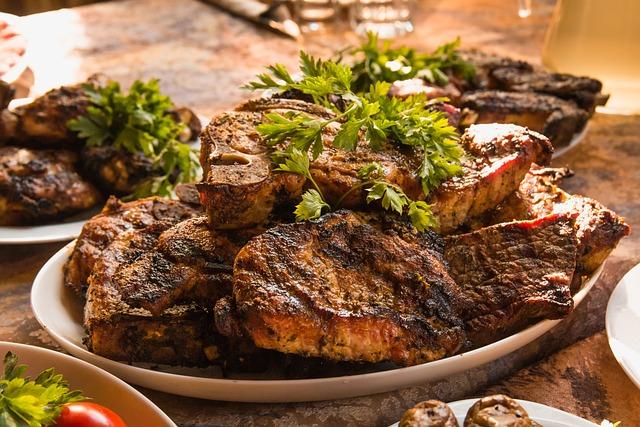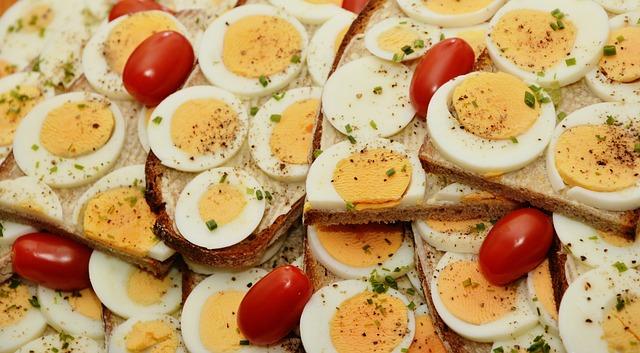Building muscle is a goal that requires more than just lifting weights; it demands a strategic approach to nutrition, with protein playing a pivotal role. As you embark on your muscle-building journey, understanding the significance of protein in your diet is crucial. Protein is the fundamental building block of muscle tissue, essential for repair, growth, and overall muscle health. This article will delve into why protein is indispensable in your muscle-building diet, how it supports your fitness goals, and the optimal ways to incorporate it into your daily meals. With the right knowledge and approach, you can maximize your muscle gains and achieve the physique you desire.
Understanding Proteins Role in Muscle Synthesis
Proteins are often hailed as the building blocks of life, and for good reason. They play a pivotal role in muscle synthesis, which is crucial for anyone looking to enhance their physique or improve their strength. When you consume protein, your body breaks it down into amino acids. These amino acids are then utilized in various processes, one of the most important being the repair and growth of muscle fibers. During workouts, muscles endure microscopic tears, and it is the amino acids that aid in repairing these tears, leading to muscle growth.
- Protein Quality Matters: Not all proteins are created equal. Opt for complete proteins like those found in animal products, quinoa, and soy, which contain all nine essential amino acids.
- Timing is Key: Consuming protein around your workout can maximize muscle repair and growth. Consider a protein-rich snack or meal within two hours post-exercise.
- Balance is Essential: While protein is vital, remember to balance it with carbohydrates and fats to ensure overall nutritional adequacy and energy supply.
Incorporating sufficient and quality protein in your diet not only supports muscle synthesis but also contributes to overall health and well-being. Embrace the power of protein to fuel your muscle-building journey confidently.

Choosing High-Quality Protein Sources for Optimal Growth
To maximize your muscle-building potential, it’s crucial to incorporate high-quality protein sources into your diet. Not all proteins are created equal, and selecting the right ones can make a significant difference in your growth and recovery. Prioritize complete proteins, which contain all nine essential amino acids, as these are the building blocks your muscles need to repair and grow effectively.
- Lean Meats: Opt for options like chicken breast, turkey, and lean cuts of beef. These are rich in essential amino acids and low in saturated fats.
- Fish: Salmon, tuna, and mackerel are excellent choices. They’re not only packed with protein but also provide heart-healthy omega-3 fatty acids.
- Dairy: Greek yogurt, cottage cheese, and low-fat milk offer high protein content along with calcium for bone health.
- Eggs: Known as a complete protein, eggs are versatile and can be incorporated into any meal.
- Plant-Based Options: For those preferring plant-based proteins, quinoa, lentils, and chickpeas are great alternatives, offering fiber and other essential nutrients.
Incorporating a variety of these protein sources ensures you get a balanced intake of nutrients, supporting muscle synthesis and overall health. Remember, quality is just as important as quantity when it comes to building muscle.

Balancing Protein Intake with Carbohydrates and Fats
While protein is the cornerstone of any muscle-building diet, balancing it with the right carbohydrates and fats is crucial for optimal results. Carbohydrates are your body’s primary source of energy, essential for fueling intense workouts and aiding in recovery. Complex carbs such as whole grains, vegetables, and legumes provide sustained energy and should make up a significant portion of your diet. Meanwhile, healthy fats like those found in avocados, nuts, and olive oil play a vital role in hormone production, including testosterone, which is critical for muscle growth.
- Protein: Essential for muscle repair and growth. Aim for lean sources like chicken, fish, and plant-based options.
- Carbohydrates: Focus on complex carbs to maintain energy levels and support recovery.
- Fats: Prioritize unsaturated fats to aid hormone production and overall health.
Remember, a well-rounded diet that includes these macronutrients in appropriate proportions will not only enhance your muscle-building efforts but also support overall health and well-being.

Timing Your Protein Consumption for Maximum Results
When it comes to optimizing muscle growth, understanding the timing of your protein intake can be just as crucial as the amount you consume. Research suggests that distributing your protein intake evenly across your meals throughout the day can lead to more effective muscle protein synthesis. This means not only focusing on your post-workout shake but also ensuring each meal is packed with protein-rich foods. Consider incorporating protein sources such as:
- Lean meats like chicken and turkey
- Fish such as salmon and tuna
- Plant-based options like lentils and chickpeas
- Dairy products including Greek yogurt and cottage cheese
Another critical moment for protein consumption is immediately after your workout. This is when your muscles are most receptive to nutrients, making it an ideal time to consume a protein-rich snack or shake. Aim to include about 20-30 grams of protein in this post-workout window to kickstart recovery and muscle repair. By strategically timing your protein intake, you can maximize the results of your muscle-building efforts and achieve your fitness goals more efficiently.




